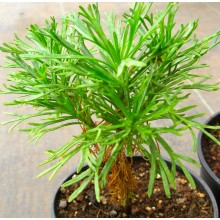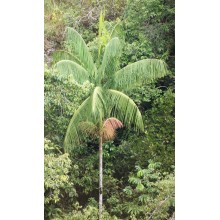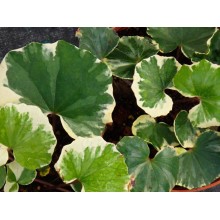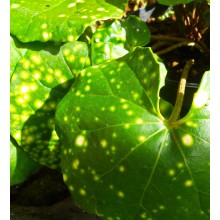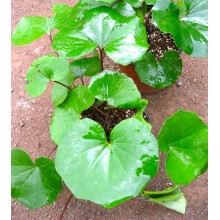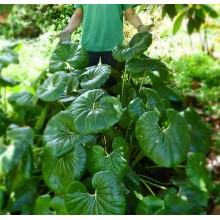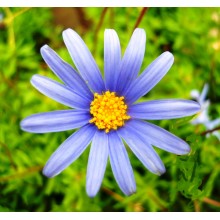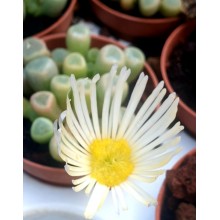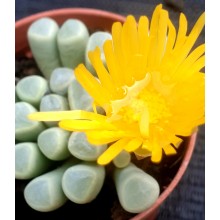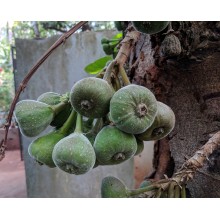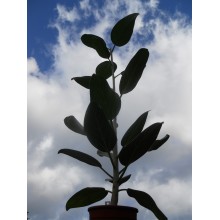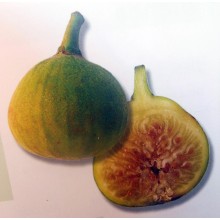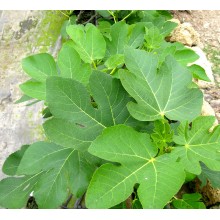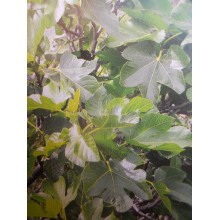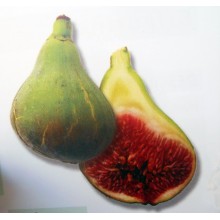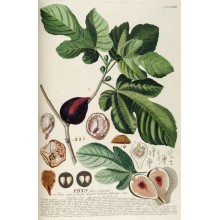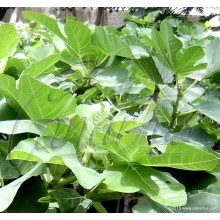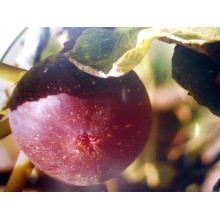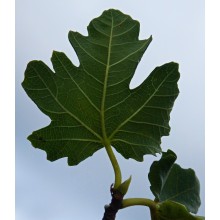General Plants There are 1884 products.

If you like exotic plants, you just came to the right place. Canarius offers the hard-to-find exotic plants which are seldom available in garden centres. Our shop has natural species as well as rare hybrids. We offer exotic plants from the Canary Islands.
Orders are sent to anywhere in Europe and also worldwide. Parcels will reach your home in a few days after shipping (but we also need some days for processing). Feel free to contact us if you have any questions.
Subcategories
-
Succulents
World deserts and dry areas are home to the most interesting plants. Canarius offers an increasing selection of succulent plants of maximum quality, because they are grown outdoors, under the full sun of the Canary Islands.
Succulents or "fat plants" are water-retaining species, adapted to dry conditions. They store succum (juice, water) in their leaves, stems or roots, and often show a stout and fleshy appearance.
-
Exotics
Exotic plants are species from other parts of the world, and they usually have ornamental qualities: a lush foliage, colorful flowers, unusual shapes... Here you can find a great variety of exotic plants: from Bromeliads and Heliconias, to pamls and houseplants.
Exotic plants do not have a particular use. Collectors buy this kind of plants for their rarity, for indoor or outdoor decoration, depending on their features.
-
Fruit, Herbs & Medicinals
Fruit, Herbs & Medicinal plants are focused on getting a better health. In this section, each type of plant produce healthy effects, both fruit trees (Feijoa, Pineapple, Fina de Jete...) and plants for health, such as Graviola, Aloe vera, Callisia fragrans...
In the normal metabolism of all living beings, the organism produces some substances from nutrients latent in the environment; some of these chemicals are part of the process in all (or almost) sort of species. Normally, the useful compounds are concentrated in some of its parts: leaves, seeds, flowers...
Find out your advisable plant and buy it online!
-
Special
On canarius.com we try to remove limits in the field of botany. On our online store we try to facilitate the purchase/sale of plants to anywhere in the world. That's why, we grow from the most common species to the most special plants, as we can see in this section.
-
Euryops socotranus
Euryops socotranus
Rarely cultivated shrub endemic to the island of Socotra. It grows in rocky harsh areas and it is especially abundant at about 1000 m elevation. It is closely related to Euryops arabicus and thrives in coastal Mediterranean conditions. It is suited to pot culture and also makes a nice garden subject for dry sunny areas.
27,50 € -
Farfugium japonicum 'Argenteum'
Farfugium japonicum 'Argenteum'
This classic clone of Farfugium is still unsurpassed in beauty. Leaves show many different hues of white. This variegated 'Argenteum' adds light to a shady spot in the garden. It has been around for more than a century but it is still only grown by specialized nurseries because it is slower than other cultivars.
24,50 € -
Farfugium japonicum 'Aureomaculatum'
Farfugium japonicum 'Aureomaculatum'
This is one of the oldest cultivars of the "Leopard Plant", and it is the one that gives the name because of its showy spots. It is still one of the most used and loved forms. This cultivar of Farfugium japonicum does not grow very large, and the glossy blotched leaves are a show indeed.
24,20 € -
Farfugium japonicum 'Escargot'
Farfugium japonicum 'Escargot'
Large sized Farfugium with different leaves. "Escargot" means snail in French, and in this cultivar of Farfugium leaf margins are a bit "squared" and leaf lobes do overlap, forming a spiral reminiscent of a snail. The whole leaf looks like a snail... with some good fantasy. Some experts believe that 'Escargot' is a hybrid between Farfugium 'Giganteum' and...
18,20 € -
Farfugium japonicum 'Gigantea'
Farfugium japonicum 'Gigantea'
This cultivar produces the largest leaves, very glossy and deep dark green. And it is also more robust in genera.
18,60 € -
Felicia amelloides
Felicia amelloides
Felicia amelloides is an attractive blue daisy, native to South Africa, from sandy coastal areas with rain all year round. It is easy in cultivation, in pots or as a mixed-border plant. It endures a wide range of temperatures, including some light frost.
10,50 € -
Fenestraria rhopalophylla - White
Fenestraria rhopalophylla - White
Miniature beauty from South Africa. This succulent has unusual leaves with a translucent window on the top. Beautiful, white, daisy-like flowers. Easy to grow in sand, better with a winter rest.
10,30 € -
Fenestraria rhopalophylla ssp aurantiaca
Fenestraria rhopalophylla ssp aurantiaca
Cont. 6 cm. A beauty from South Africa. This succulent has unusual leaves with a translucent window on the top. Beautiful daisy like flowers. Easy to grow, needs a winter rest.
10,50 € -
Ferraria crispa
Ferraria crispa
Truly exotic flowers, star-shaped, with frilly margins, speckled in maroon and yellow, with a sweet vanilla scent. They come out of fan-arranged leaves that grow from tiny underground corms. It is native to the Cape Province in South Africa.
25,00 € -
Ficus auriculata 'Everest'
Ficus auriculata 'Everest'
This is one of the most ornamental Ficus species. Leaves are huge, rounded, ribbed and velvety., They are bright red when they are new. As an adult, it is a large shrub to small tree, some 2-12 m tall. Figs are edible too and they are truly beautiful, because they grow directly on the trunk with a velvety shine.
49,20 € -
Ficus benghalensis - True Banyan
Ficus benghalensis - True Banyan
One of the most beautiful trees on Earth is the "banyan", a huge strangling fig from India, where it is widely considered sacred. The largest specimens can cover surfaces up to two hectares! By chance and by luck, juvenile specimens make excellent house plants.
38,00 € -
Ficus carica 'Blanca 1025' - Canarian Fig
Ficus carica 'Blanca 1025' - Canarian Fig
NEW! Traditional cultivar of fig from the Canary Islands
48,00 € -
Ficus carica 'Blanca del Pais' - Canarian White Fig Tree
Ficus carica 'Blanca del Pais' - Canarian White Fig Tree
Local canarian white fig tree.
29,70 € -
Ficus carica 'Breverilla Blanca 915' - Canarian Fig
Ficus carica 'Breverilla Blanca 915' - Canarian Fig
NEW! Hard to find traditional variety of fig from the Canary Islands
44,50 € -
Ficus carica 'Gomera' - Canarian Fig
Ficus carica 'Gomera' - Canarian Fig
This Fig cultivar is one of the most widespread on the Canary Islands. It is very productive and adaptable. Fruits have purple to dark red skin. Flesh is dark pink and very sweet. It is both eaten fresh or used for drying.
29,70 €
At the moment there are few products in this category General Plants




















